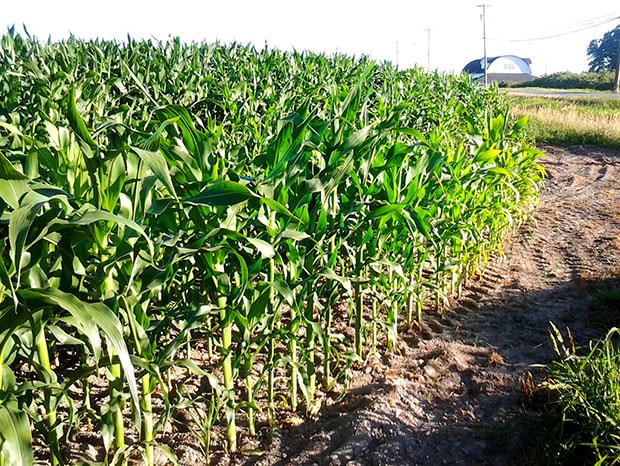Delta isn't following Richmond's lead in passing a motion banning genetically modified food crops from being grown in the community.
Local politicians recently discussed the issue raised by a resident, who wrote asking Delta support a resolution at the upcoming Union of B.C. Municipalities convention.
Several municipalities have already declared themselves "GE Free" zones, including Rossland, Saanich and Saltspring Island. Richmond council earlier this year also passed a ban, although some say it's merely symbolic, because in Canada GMOs (genetically modified organisms) are regulated by the federal government.
Delta's land base is mostly agricultural, but municipal council here has stayed away from the controversy over GMOs.
Council agreed it needed more information on the issue.
Also referred to as biotech crops, GMO crops are plants where the DNA has been altered to introduce a different trait into the plant. The aim is to increase resistance to certain pests, diseases and environmental conditions, or make them pesticide resistant.
Noting that even the Delta Farmers' Institute didn't have much expertise on the subject, Coun. Ian Paton, who's also a longtime farmer, told the Optimist those in the business of selling GMO seeds will assure the product is safe.
He noted that as far as he's aware, there are only a few crops in Canada, including corn, grown with GMO seeds.
"If you study on the Internet, you'll see there's genetically modified seed for things like rice and grains like barley and oats and wheat. They've been modified to withstand greater lengths of heat and drought or frost and cold. It's advances like that that have kept farmers going," he said.
"If we all sat back and just stayed with the old technology, whether it's genetics in grain cattle or beef cattle, or genetics in seed, we'd still be trying to farm as if we were in the '50s or '60s. But the only really genetically modified seed that I can think of in Delta is cow corn, which is totally different from the sweet corn for human consumption," Paton said.
Coun. Bruce McDonald noted his colleagues wouldn't be interested passing motions or bylaws in areas in which they have no jurisdiction.
"I have a difficult time getting involved in symbolic bylaws, like Vancouver declaring itself a nuclear-free zone," he said.
"I have a real concern about some of the genetically modified stuff but I'm certainly not an expert on it. Farmers have been selectively breeding forever, so is that genetic modification? I'm not sure where the line is."
The David Suzuki Foundation notes the safety of GMO foods is unproven and a growing body of research connects these foods with health concerns and environmental damage. For this reason, most developed nations have policies requiring mandatory labeling of GMO foods at the very least, and some have issued bans on GMO food production and imports, Suzuki says on his website, noting that's not the case in Canada. Suzuki writes that Canadians are often unaware the foods they choose contains GMO ingredients. While environmental and food advocates lobby for labeling, other groups, like The Non-GMO Project, have created voluntary non-GMO certification to facilitate consumer information, he says.



